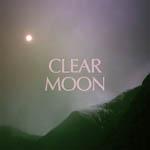
Mount Eerie Clear Moon
(P.W. Elverum and Sun)
A kneejerk response was met once the voice of Phil Elverum, (a.k.a. Mount Eerie), melodically spoke the words, “Misunderstood and disillusioned.”
Having then subconsciously lowered my expectations, Elverum’s dirge-y requiem-esque guitar notes in Through The Trees, Pt. 2, the first song from his first of the two albums he’ll be releasing in 2012, Clear Moon, I expected to be treated to another ten songs’ worth of sorrowful odes delivered with the predictable amount of sad sack poetic inflection I expect with singer/songwriter types who are forced to empty their artistically tortured souls onto LPs and digital downloads, articulating a life of despair and the trials of having no choice but to make music and live a purely self-indulgent, self-obsessed, solipsistic existence wherein no one can know or ever understand what it is to be Enigma Dylan.
I can’t help it if certain clichés in music exist, or if they enliven prejudicial voices in my jaded little head.
Clear Moon, though, as it happens, is not the product of a malnourished and complacent talent, nor is it a whittled down Cliff’s Notes variety repackaging of Bob Dylan or Nick Drake. Misunderstood and disillusioned Elverum’s album is substantive and sort of warped in the most sublime sense of the word. Similar to Elverum would be Ben Chasny (Six Organs of Admittance), who also works in assortments of acoustic tenderness and lapses into weirdness, a very heavy and severe influence seemingly present in every note. Clear Moon actually struck me at points in the same way a categorically loud album would, Elverum’s moments of drifting folk music transitioning into attention seeking volume, in both the actual and musically suggested forms of the word.
Despite my initial reservations with the album’s opening track, which I like much better now that I’ve heard the entire album, the following tracks, The Place Lives and The Place I Live, both interestingly flirt with acoustic and droning elements, the former a veritable storm of acoustic strumming that’s drowned out by electrified strings and whining melodies. The Place I Live takes on a foreboding tone, a singular bass throb pulsing lightly before synthesized fields of near-Angelo Badalamenti hum become the song’s primary focus, leading once again into slow electric guitar solos and vocal melodies via Allyson Foster.
The interlude provided by (something) unexpectedly leads into Lone Bell, a brass section and rising staircase of a low end anchored by scattered brushes upon the snare and a reliably timed hi-hat. Elverum waxes, “What is left of the dissipating dream world I made?” the song itself a looped cycle of big band dread and one of the more fascinating of Clear Moon’s inclusions. Evocative of Neu!’s usage of repetition and space, House Shape is the more solid of the album’s offerings, less prone to go off the page musically.
Ô Paon's Geneviève Castrée makes an appearance in Over Dark Water, the album’s three-minute experiment with Black Metal. Sounding like a chorus of female voices carried through an undisclosed expanse, Castrée and Elverum harmonize very nicely, Sunn O))) bottom end and higher-pitched guitars interacting in light chaos until the percussion takes hold, ending the track in a rumbling of cymbals and tom raps. The album’s title track is seasick with rattling percussion, tympani heft and bells settling beneath its synthesized tone. Elverum’s voice, manipulated with what could be a vocoder, speaks the title softly as if paying inadvertent and likely unintentional homage to Kraftwerk’s Computer World.
The softness of Yawning Sky and (synthesizer) bring the album to a close.
On Elverum’s website he links to a YouTube page featuring a playlist of music that, according to him, “perhaps informed these recordings, maybe.” Featuring bands as varied as Popol Vuh, Earth and Burzum, his eagerness to communicate his inspiration for Clear Moon goes a long way to explain his album’s output.
But, are explanations really necessary? As it is, Elverum’s utilization of metallic and avant-garde elements into what might otherwise be considered a folk album demonstrates a songwriter unlimited by genre and also turned on by creative possibility. Album number two, Oceans Roar, will have a good amount to live up to.
25 May, 2012 - 08:16 — Sean Caldwell